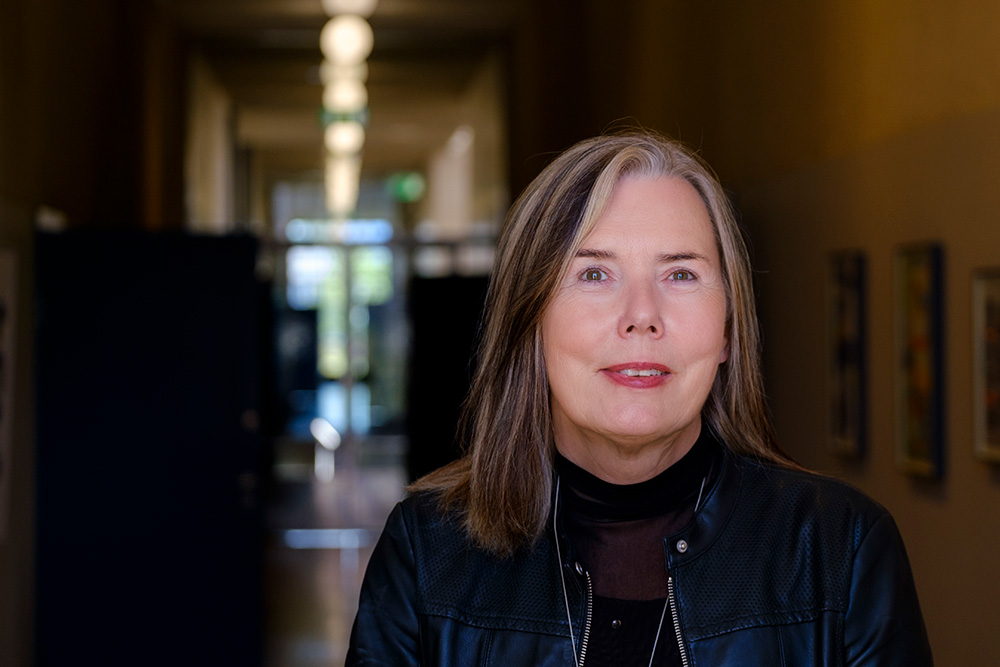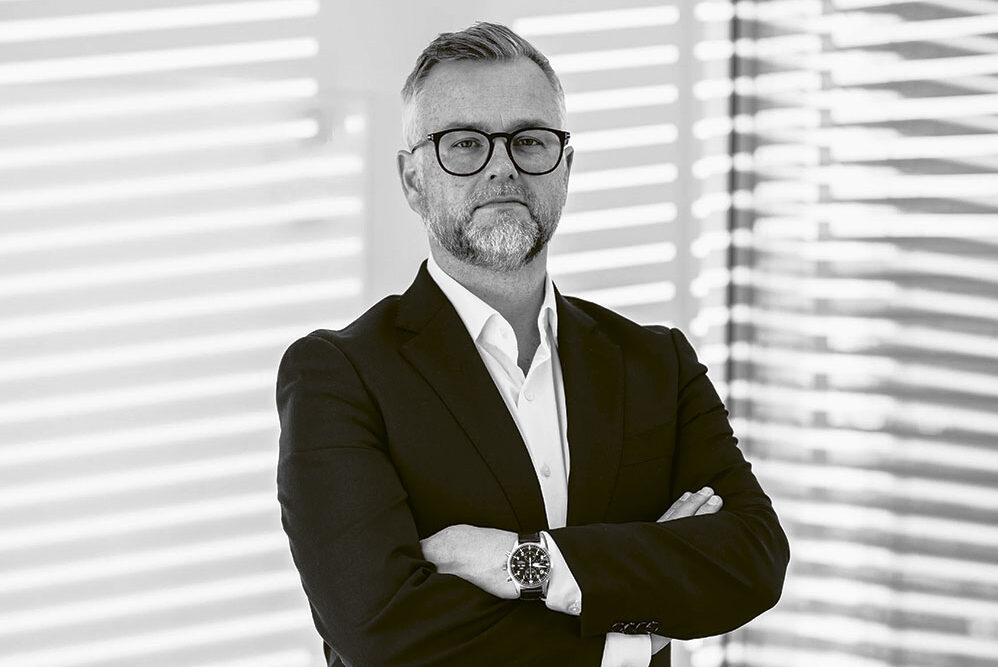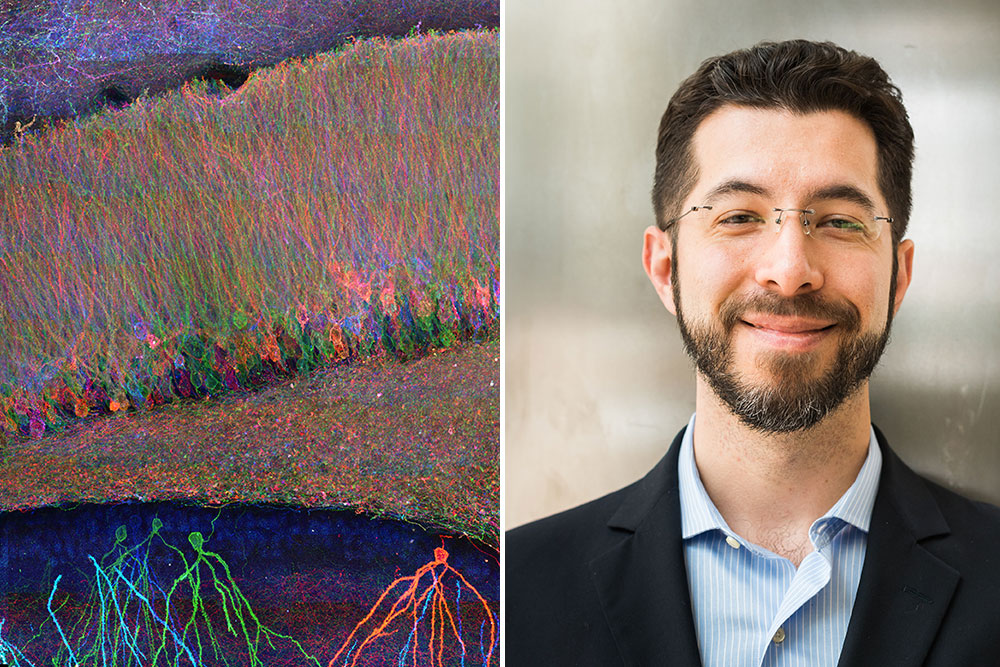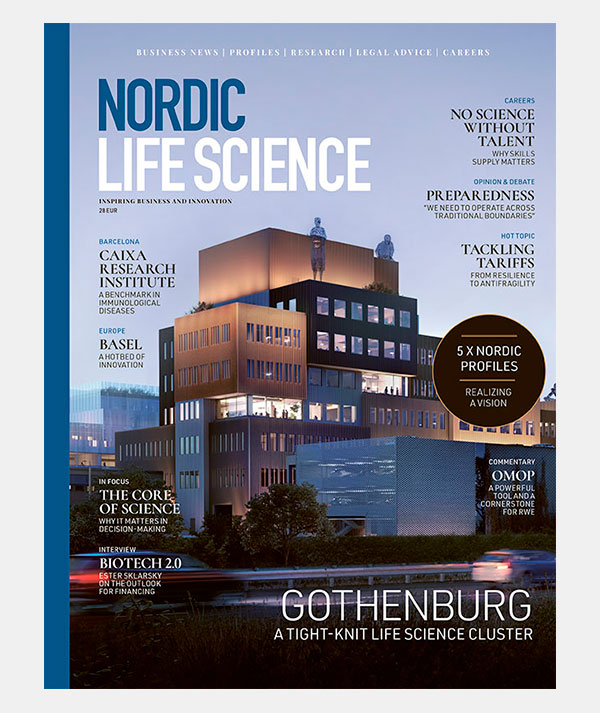Unnur Thorsteinsdottir: One of the world’s foremost genetic scientists

It’s not often that someone is able to find their niche early in their career and find out they are where they are supposed to be to accomplish their best work. Dr. Unnur Thorsteinsdottir is one of those lucky ones.
Unnur Thorsteinsdottir was recently appointed Co-Managing Director of deCODE genetics in Reykjavik, Iceland, where her responsibilities have steadily grown during her 25-year tenure. She joined deCODE in 2000 after receiving her doctorate in cell and molecular biology at the University of British Columbia, Canada, and completing her postdoctoral training at the Institut de Recherches Cliniques de Montréal (IRCM), also in Canada.
A leader on the world stage in genetics
Founded in 1996, deCODE genetics is an international leader in analyzing and understanding the human genome and has made its name discovering genetic risk factors for a range of illnesses, including cardiovascular conditions and cancer. In 2012, Amgen acquired deCODE, which is helping Amgen to find disease-causing genes, and utilizing large sets of genetic and phenotypic data that deCODE has collected.
My work at deCODE has been a mix of management and research.
“I realized that the founder of deCODE had a bold scientific vision that was backed up by funding,” says Thorsteinsdottir of her decision to join the company. “I came in as a project leader in cancer and after three years, I became Director of the Population Genomics division.”
By 2010, she was named deCODE’s Vice President of Research. “My work at deCODE has been a mix of management and research. deCODE is a leader on the genetics world stage, quite an accomplishment considering that Iceland is so small,” she says.
Part manager, part researcher
Today, her responsibilities at deCODE include overseeing the day-to-day business of the company with her colleague and planning upcoming work while still engaging in research.
When you are part of a company that develops drugs, you hope your work will be beneficial to humankind. That’s the driver.
“I’ve always been partly a manager and a researcher, and now I have a broader role in management, and I enjoy it,” says Thorsteinsdottir. “I would not like to be just management, but organizing science and planning ideas is key. When you are part of a company that develops drugs, you hope your work will be beneficial to humankind. That’s the driver.”
Regular tasks include planning the work schedule, making the right decisions for the next steps for projects, and deciding how findings are to be used. “We continue to make discoveries,” notes Thorsteinsdottir.
An impressive research record
As for her own work, Thorsteinsdottir’s focus is on determining how the genome has evolved and the contributing factors to that, and identifying genes involved in diseases. Her research accomplishments include her contribution to the discovery of genes that that increase the risk of getting Alzheimer’s disease. These findings provided additional insight into Alzheimer’s disease and have led to the development of drugs for the disease. Another study by Thorsteinsdottir has demonstrated that the number of mutations in male sperm increase as men age, so older men can unknowingly pass on abnormalities to their offspring.
Thorsteinsdottir’s research record is so impressive that she recently earned the title of the most influential female scientist in Europe and the fifth most influential in the world, based on an analysis of research generated by more than 160,000 female scientists by Research.com.
She has also returned to academia, one of her early interests. Before embracing research, Thorsteinsdottir was a college instructor for eight years, a job she says she loved. Recently she became the Dean of the School of Health Sciences at the University of Iceland. She also shares her expertise while serving on the board of the Icelandic Centre for Research (Rannís) and the Science and Technology Policy Council.
Human genetics applied to healthcare
Over the next two decades, Thorsteinsdottir says she would like to see human genetics applied more to healthcare, by developing personalized medicine, targeted drugs and stressing prevention.
Human genetics has evolved rapidly in the past 15 years, mostly due to new technologies. Analyzing the sequence variation in the human genome is getting cheaper; it’s very common to sequence the whole genome of people.
“Human genetics has evolved rapidly in the past 15 years, mostly due to new technologies” she says. “Analyzing the sequence variation in the human genome is getting cheaper; it’s very common to sequence the whole genome of people.”
The growth of life science in Iceland should help those goals become reality. “Iceland’s life science sector is expanding, we have strong cell and molecular biology science in Iceland,” says Thorsteinsdottir. “We need to aim high, think big, and it’s very important for science in Iceland to get funding from larger organizations such as the National Institute of Health in the USA and EU Research and Innovation,” she continues.
Passion is key
While science can be all-consuming, Thorsteinsdottir says she loves being outdoors, hiking and cycling, and reading a range of subjects including historical literature, biographies, and the classics. “I also enjoy following what is happening in world politically and how things are evolving,” she says.
You have to have passion, passion is the key, work very hard, collaborate with other scientists, and do what you’re passionate about.
Young people interested in working in the life sciences need to be driven if they are to succeed, notes Thorsteinsdottir. “You have to have passion, passion is the key, work very hard, collaborate with other scientists, and do what you’re passionate about.”
This interview was originally published in NLS magazine No 03 2025, out September 2025
Published: November 16, 2025











